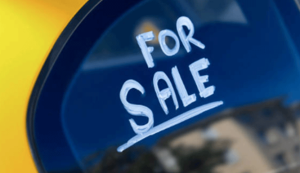Magazine Scams
Are you a new business owner, just starting out, and recently approached by a fundraising magazine? Naturally, you’re intrigued; getting your business name out there is crucial in advertising when you’re just beginning.
They’re offering ad space, around a ninth of a page, for a cost of $300 to $400. You’ve found yourself agreeing to it, but there’s a catch—you don’t recall agreeing at all. They’re persistent, bombarding you with calls and emails.
Don’t worry, you’re not alone. These schemes are often dubbed “False Billing Scams.” The perpetrators persuade businesses to pay for goods or services they never actually ordered. Shockingly, in 2021, one out of every five Australian businesses fell victim to these scams, resulting in nearly three-quarters of a million dollars fraudulently obtained from unsuspecting victims.
The unfortunate consequence is that legitimate magazines, even those supporting not-for-profits like the SES, may encounter reluctance from businesses that have been burned in the past by similar scams.
Here are some common characteristics of false billing schemes:
- Unsolicited Goods or Services: Scammers may send invoices for services that the recipient did not order or request. An example of this is advertising space in magazines.
- Deceptive Invoices: Invoices may be designed to resemble legitimate documents from well-known companies or organisations, making it easier for scammers to deceive recipients into paying.
- Pressure Tactics: Scammers may use high-pressure tactics, such as persistent phone calls or emails, to pressure businesses into paying the invoice quickly before they have a chance to realise it is fraudulent. A lot of these callers have no accent, so they may sound genuine, giving you a reason to believe it is a legitimate call.
- Fake Discounts or Offers: Some false billing schemes may offer fake discounts or special deals to entice recipients into paying the invoice without questioning its legitimacy.
- Impersonation of Legitimate Businesses: Scammers may impersonate legitimate businesses to make their invoices appear more credible. They may use official logos, letterheads, or email addresses to make their communications seem legitimate.
- Difficult to Detect: False billing schemes can be challenging to detect, especially if the recipient is not closely monitoring their invoices or is not familiar with the products or services being billed.
If you’ve received a call or invoice that seems suspicious, don’t hesitate to reach out to the National Inquiry Agency. Their team will thoroughly investigate the legitimacy of the company and look into any complaints from fellow business owners who may have fallen victim to similar scams.
Reporting these incidents isn’t something to be ashamed of. By speaking up, you’re helping to prevent other business owners from being targeted by scammers. The more these scams are reported, the better chance we have of stopping them in their tracks.




